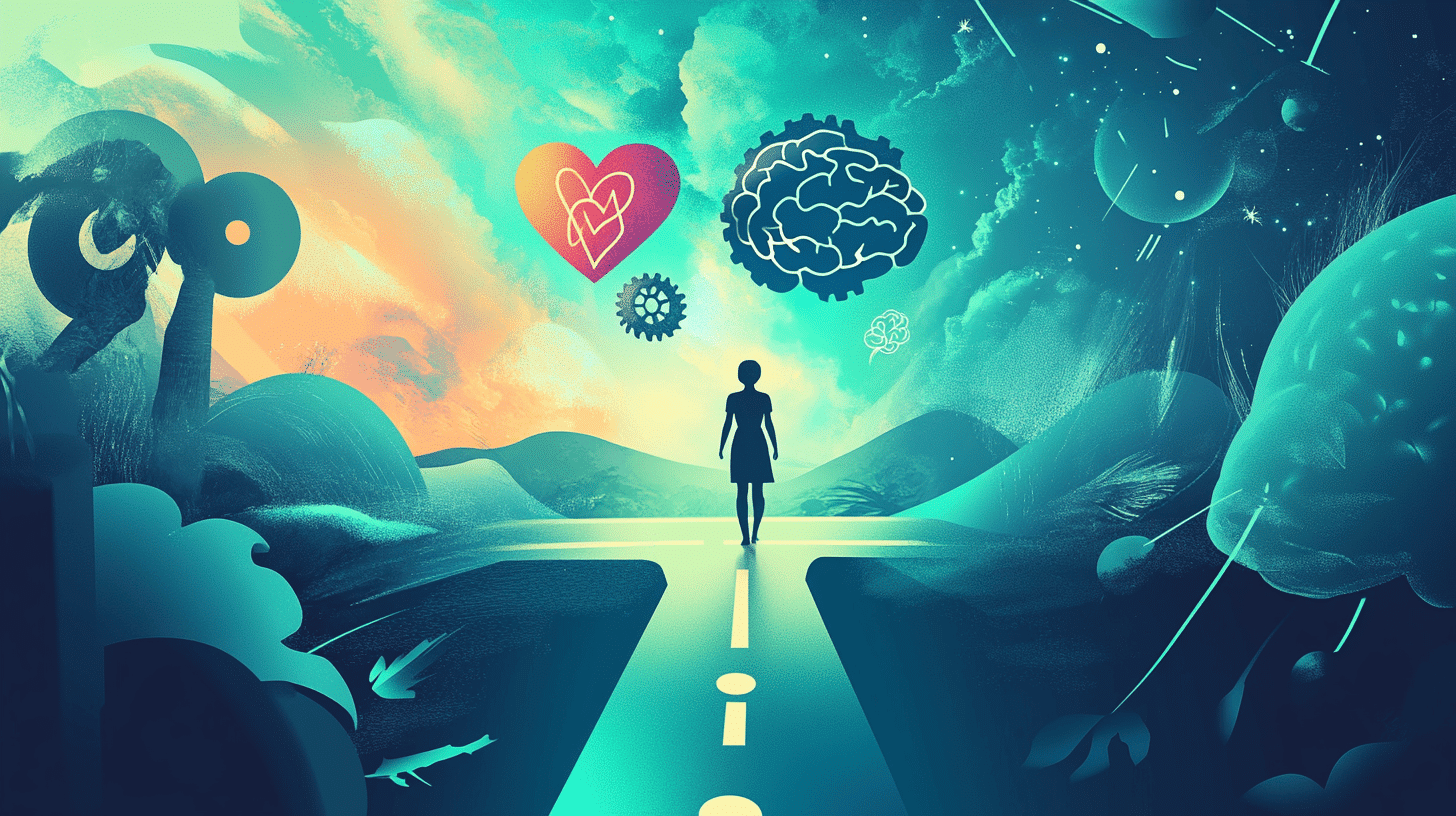Emotional intelligence is an essential skill that can profoundly impact our lives, both personally and professionally. Understanding and managing your emotions and those of others can be the key to happiness, healthy relationships, and career success. In this article, we’ll explore what emotional intelligence is, why it’s important, and how you can develop it over time.
What is Emotional Intelligence?
Emotional intelligence, often abbreviated as EI, refers to the ability to recognize, understand, and manage our own emotions and the emotions of others. Daniel Goleman, one of the leading researchers in this field, divides emotional intelligence into five components:
Self-knowledge:
The ability to recognize your own emotions and how they affect your thinking and behavior. 2. Self-control: The ability to manage your emotions, control impulses, and deal effectively with stress. 3. Motivation: The ability to motivate yourself and pursue goals with energy and optimism, focusing on results. 4. Empathy: The ability to understand the emotions of others, which is fundamental to building healthy relationships. 5. Social skills: The ability to communicate and relate well with others, building support networks.
Why is Emotional Intelligence Important?
Investing in developing emotional intelligence can bring countless benefits. Here are some of them:
– Improved Relationships: People with high EI tend to have healthier interpersonal relationships. They can put themselves in other people’s shoes, which facilitates communication and avoids misunderstandings. – Stress Reduction: By better managing your emotions, you can better deal with stressful situations, preventing them from affecting your mental and physical health. – Professional Success: Emotional intelligence is often considered more important than conventional intelligence (IQ) for success in the workplace. Emotionally intelligent leaders are better at motivating their teams and managing conflict. – Resilience: EI strengthens your ability to face challenges and bounce back from difficulties, allowing you to adapt to different situations throughout your life.
Steps to Develop Your Emotional Intelligence
Now that you understand the importance of emotional intelligence, how can you develop it? Here are some practical tips:
Practice Self-Awareness
– Set aside time each day to reflect on your emotions. Ask yourself, “What am I feeling right now? Why am I feeling this way?” This helps you increase your emotional awareness and identify patterns in your behavior.
Keep an Emotional Diary
– Write down your emotions throughout the day and the situations that triggered them. This will help you identify your emotional reactions and better understand how to manage them.
Learn to Control Your Emotional Responses
– When you feel intense emotions, practice self-control techniques such as deep breathing, meditation, or counting to ten before reacting. This can help you respond in a more thoughtful and rational way.
Develop Empathy
– Try to put yourself in other people’s shoes. When someone shares their concerns or feelings, listen actively and ask questions to better understand their perspective.
Improve Your Communication Skills
– Practice active listening and expressing your emotions clearly and respectfully. Well-developed social skills are essential for building healthy relationships.
Seek Feedback
– Ask friends or colleagues to give you feedback on how you handle your emotions and how you impact others. This can provide valuable insights into areas where you can improve.
Improve your Resilience
– Face challenges and see them as opportunities for learning and growth. Develop a positive mindset that helps you overcome adversity.
Resources to Deepen Learning
There are many books, courses, and online resources available to help you develop your emotional intelligence. Here are some suggestions:
– Books: “Emotional Intelligence” by Daniel Goleman, “The Art of Empathy” by Karla McLaren. – Courses: Look for online courses on platforms like Coursera or Udemy about emotional intelligence and interpersonal skills. – Applications: Meditation and self-care apps like Headspace or Calm can help build self-awareness and self-control.
Conclusion
Emotional intelligence is a crucial skill that can positively transform your life. By investing time and effort into developing it, you will not only improve your personal and professional relationships, but you will also become a more resilient and adaptable person to life’s changes. Start practicing the tips we’ve outlined and watch how your life can transform. Don’t hesitate to share your own experiences and tips on emotional intelligence in the comments below!
If you enjoyed this article, consider sharing it on your social networks or exploring other content on our personal development blog. Your growth journey starts now!



